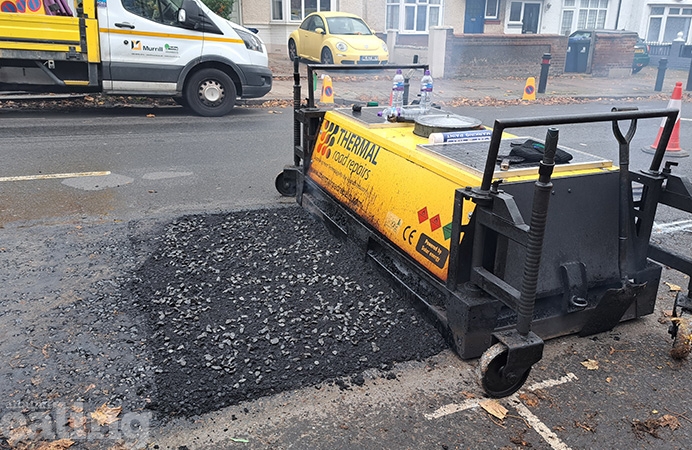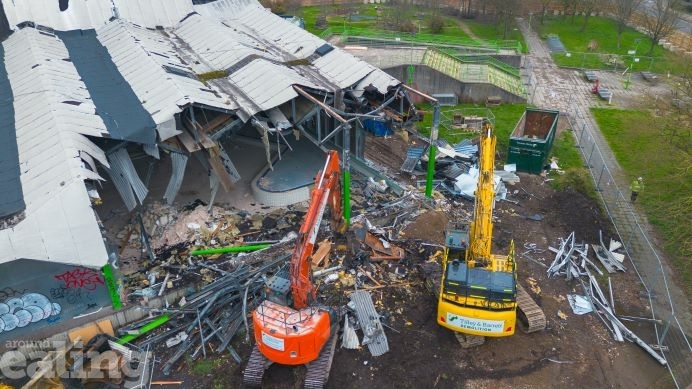An innovative new repair method using heat has been trialled in the borough to fix potholes as part of the council’s promise to invest £35m into improving the roads and pavements.
Ealing Council, working with Thermal Road Repairs and Murrill Construction, piloted the new method in Pitshanger Lane last month.
Anyone passing might have noticed some rather unusual equipment – a heater, a long rectangular box with solar panels on its upper surface, and a wheel at each corner.
Historically, the material that is normally used to fill a hole can leave an unsightly joint between the new and the old material. This also means that even the smallest of joints will widen over time and as water seeps in and vehicles drive over these cracks, dangerous potholes continue to grow.
This new technology works by heating up the loose material around the potholes and mixing this with a small amount of asphalt, rather than cutting the asphalt from the road. Not only does this reduce waste and the production of dust, which can cause air pollution, it’s also more cost-efective. And it keeps borough’s roads smoother for longer.
Stretching the pothole budget further
This new method requires a team of just 3 people and 1 van with equipment and materials, including hot asphalt. It is much more cost efficient, ensuring public money is spent on the services that are needed most by the borough’s residents.
If the potholes on Pitshanger Lane had been fixed using the traditional method, 8.28 tonnes (the equivalent of two elephants) of new asphalt would have been required. The new thermal method used just 1.24 tonnes of asphalt, a saving of 85%.
With the materials and diesel saved, and the heaters running on biofuel and solar power, there are similar carbon savings too. In the trial, the works produced 45kg of carbon, compared to 314kg for a traditional repair – that’s a saving of 86%.
With sound levels no more than at 80 decibels (dB), the equivalent of a vacuum cleaner, potholes can be fixed during the day and night.
Councillor Deirdre Costigan, deputy leader and cabinet member for climate action said: “Ensuring that roads across our borough are in good condition is a key priority for us and we are spending £35m on making our roads and pavements smooth and pothole-free. Cracks and potholes can worsen during severe weather, causing hazards to pedestrians, cyclists and drivers.
“The innovative new method of fixing potholes not only saves a whopping 85% of the asphalt usually used, but it also brings 86% of carbon savings, helping us achieve our ambition of making Ealing net zero by 2030.”
The council will be monitoring the stretch of road closely and if the repairs prove long lasting, it will be applying the innovative method in other parts of the borough.
Visit the council website for further information about highway maintenance in the borough.







